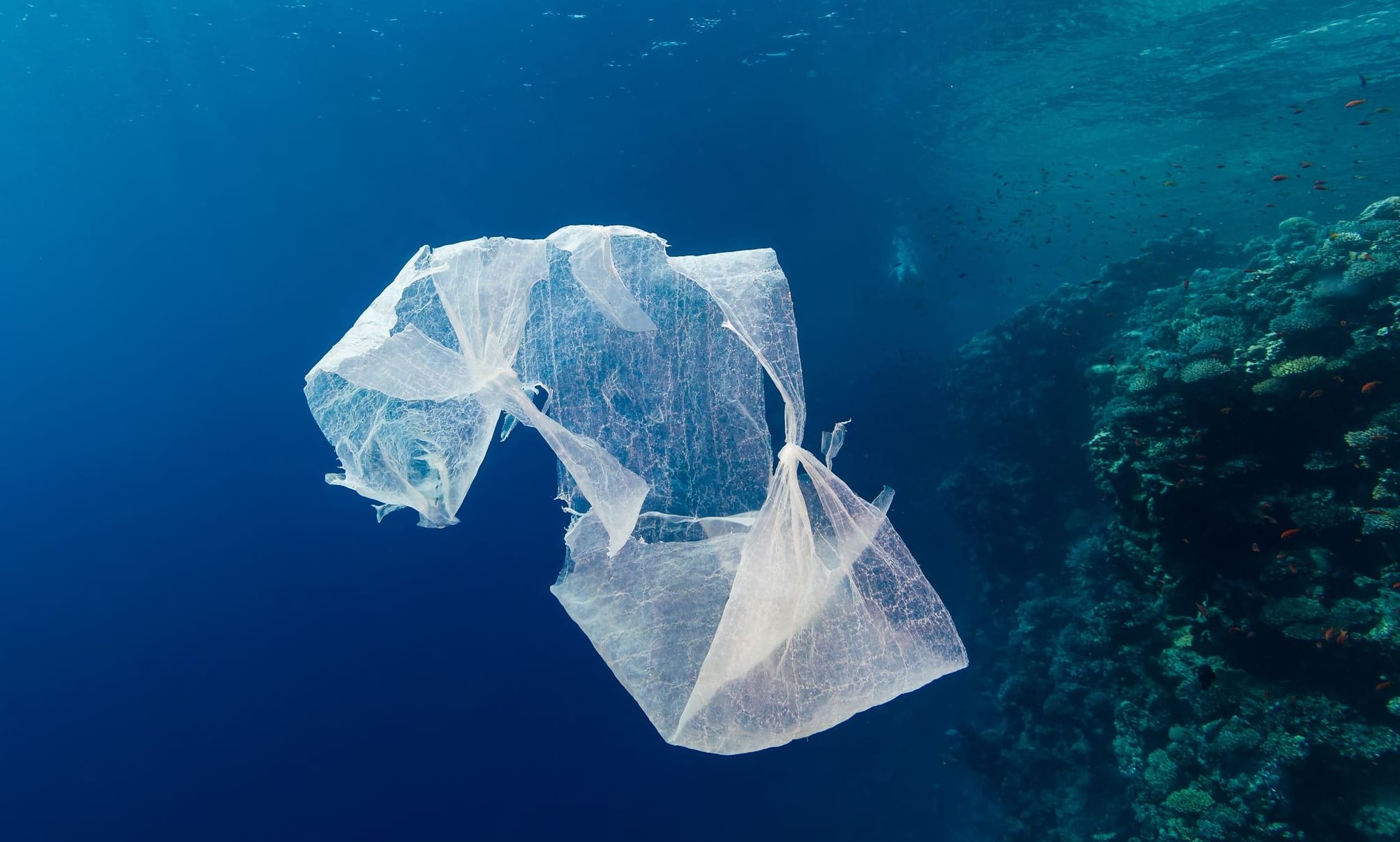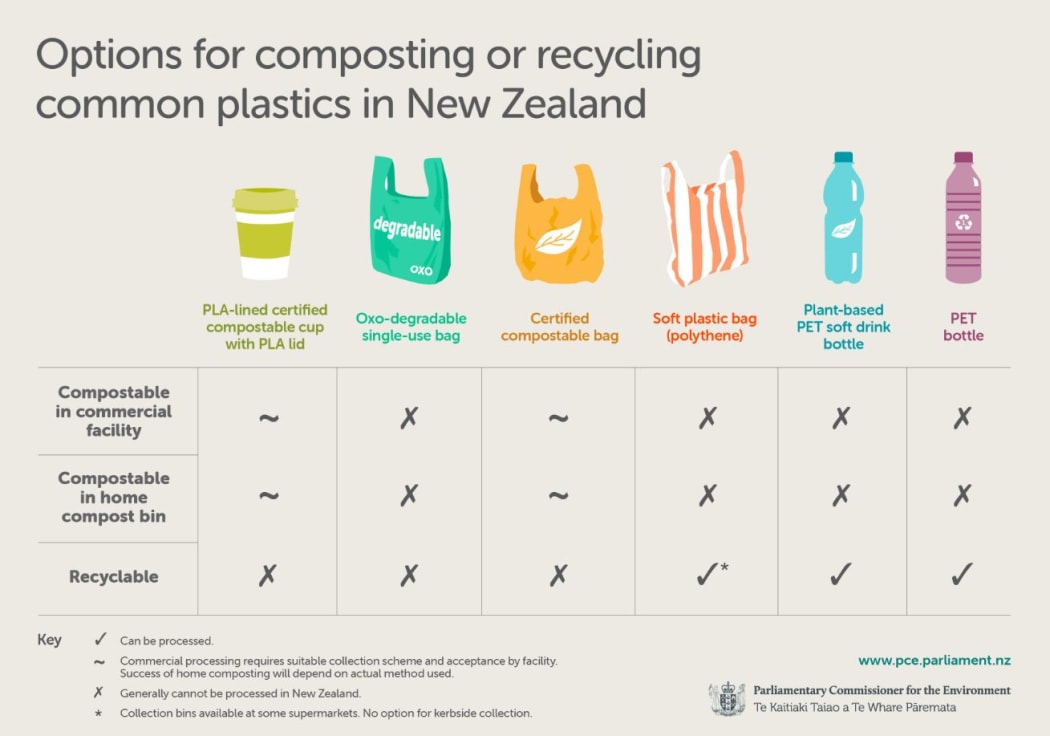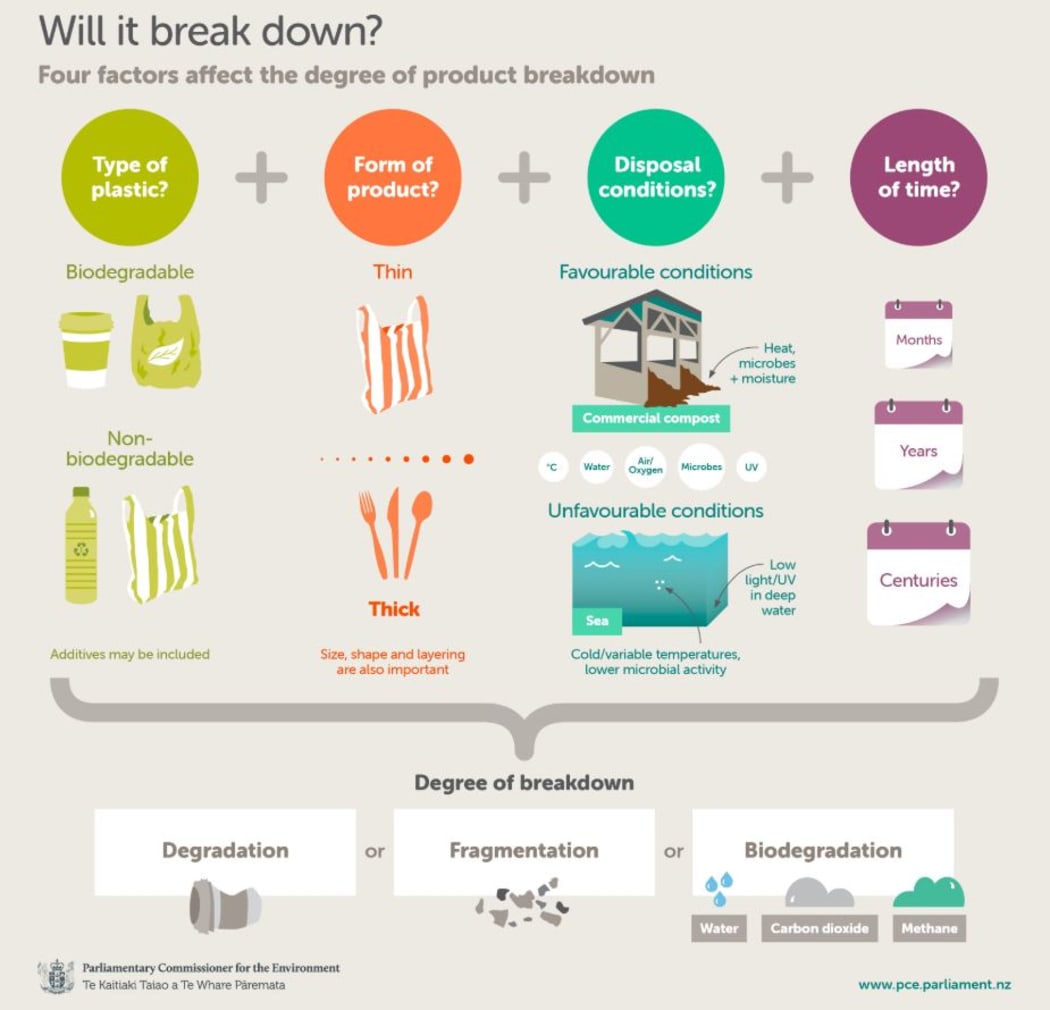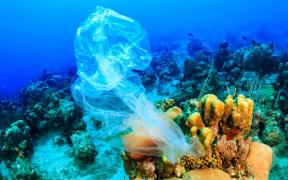The commissioner for the environment wants the government to take more urgent action tackling the confusion over compostable and biodegradable plastic.

Photo: 123RF
Parliamentary commissioner for the environment Simon Upton said growing public concern over the impact of plastic on the environment had created "a fertile climate for the promotion of plastics that are said to be biodegradable, degradable and compostable".
There was a "bewildering array of claims about plastic", some of which amounted to little more than green-washing.
Unless terms were used carefully it could create confusion and lead to worse environmental outcomes, Mr Upton said.
He has written to the associate environment minister Eugenie Sage, telling her that after coming back to New Zealand from Europe eight months ago to take up the role of commissioner, he was struck by the continued widespread use of single-use plastic in the retail sector.
He wants Ms Sage and her officials to take the lead in lifting consumer and business understanding about claims of biodegradability of plastics.
"There are all sorts of supposedly environmentally-friendly plastics coming onto the market but it is extremely difficult for consumers to make sense of their respective claims," Mr Upton said.
His office has launched an online resource to help people wanting to find out more.
The issue was complex because the impact of plastic on the environment depended on what it was made from and how it was disposed, Mr Upton said
"One can't simply toss these products onto the compost heap, or into our recycling bins, and go away thinking 'job done'."
Oxo-degradable plastics, or conventional plastics, such as polyethylene and polypropylene, are non-biodegradable fossil-based plastic.

Options for composting or recycling common plastics in New Zealand. Photo: www.pce.parliament.nz
They are considered a culprit in micro-plastic pollution in the oceans, creating a 'plastic-smog' in some parts of the ocean and can accumulate in soils.
Material fragments, when exposed to sunlight and air, typically result in a large number of micro-plastic pieces.
Although oxo-degradable plastics were sometimes marketed as biodegradable, Mr Upton said there was a lack of conclusive evidence on this and restrictions on the use of them were being considered in Europe.
In New Zealand, two oxo-degradable bag manufacturers had been charged under the Fair Trading Act for making false claims about their environmental benefits.
There were also questions about climate change implications of the breakdown of biodegradable and compostable plastics.

The factors affecting the breakdown of plastics. Photo: www.pce.parliament.nz
When a fossil-fuel based plastic completely biodegrades it adds new carbon dioxide to the atmosphere, but when a bio-based plastic breaks down it is carbon-neutral because it cycles the carbon that was removed from the atmosphere when the plant grew.
However, both can produce methane, a potent greenhouse gas.
New Zealand does not have a standard for biodegradable or compostable plastics but some manufacturers have voluntarily sought certification using international standards.
An industry working group has been established to consider whether New Zealand should adopt a standard.




